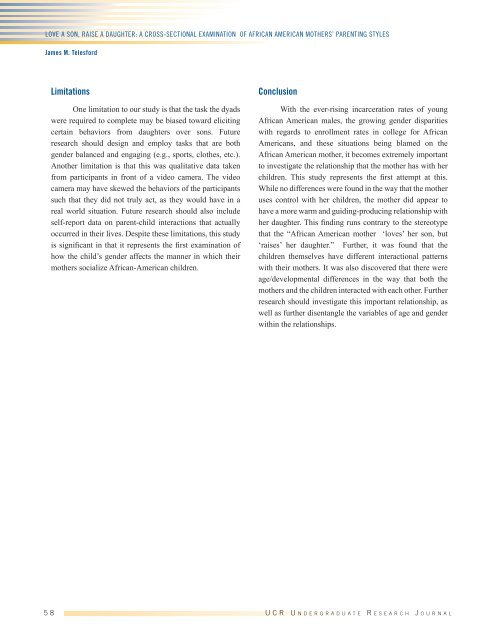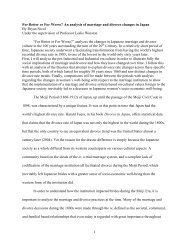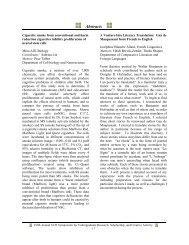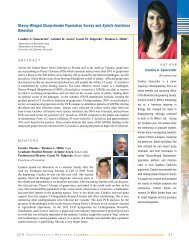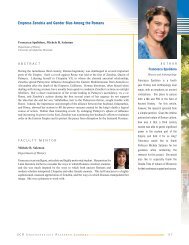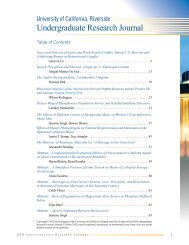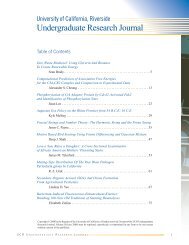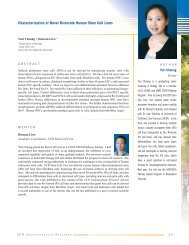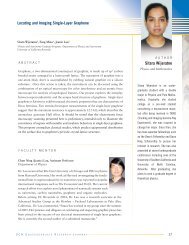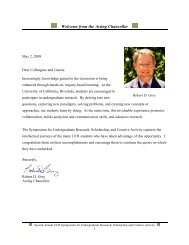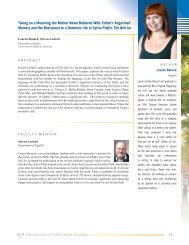Love a Son, Raise a Daughter - University of California, Riverside
Love a Son, Raise a Daughter - University of California, Riverside
Love a Son, Raise a Daughter - University of California, Riverside
Create successful ePaper yourself
Turn your PDF publications into a flip-book with our unique Google optimized e-Paper software.
<strong>Love</strong> a <strong>Son</strong>, <strong>Raise</strong> a <strong>Daughter</strong>: A Cross-Sectional Examination <strong>of</strong> African American Mothers’ Parenting Styles<br />
James M. Telesford<br />
Limitations<br />
One limitation to our study is that the task the dyads<br />
were required to complete may be biased toward eliciting<br />
certain behaviors from daughters over sons. Future<br />
research should design and employ tasks that are both<br />
gender balanced and engaging (e.g., sports, clothes, etc.).<br />
Another limitation is that this was qualitative data taken<br />
from participants in front <strong>of</strong> a video camera. The video<br />
camera may have skewed the behaviors <strong>of</strong> the participants<br />
such that they did not truly act, as they would have in a<br />
real world situation. Future research should also include<br />
self-report data on parent-child interactions that actually<br />
occurred in their lives. Despite these limitations, this study<br />
is significant in that it represents the first examination <strong>of</strong><br />
how the child’s gender affects the manner in which their<br />
mothers socialize African-American children.<br />
Conclusion<br />
With the ever-rising incarceration rates <strong>of</strong> young<br />
African American males, the growing gender disparities<br />
with regards to enrollment rates in college for African<br />
Americans, and these situations being blamed on the<br />
African American mother, it becomes extremely important<br />
to investigate the relationship that the mother has with her<br />
children. This study represents the first attempt at this.<br />
While no differences were found in the way that the mother<br />
uses control with her children, the mother did appear to<br />
have a more warm and guiding-producing relationship with<br />
her daughter. This finding runs contrary to the stereotype<br />
that the “African American mother ‘loves’ her son, but<br />
‘raises’ her daughter.” Further, it was found that the<br />
children themselves have different interactional patterns<br />
with their mothers. It was also discovered that there were<br />
age/developmental differences in the way that both the<br />
mothers and the children interacted with each other. Further<br />
research should investigate this important relationship, as<br />
well as further disentangle the variables <strong>of</strong> age and gender<br />
within the relationships.<br />
58 UCR Un d e r g r a d u a t e Re s e a r c h Jo u r n a l


